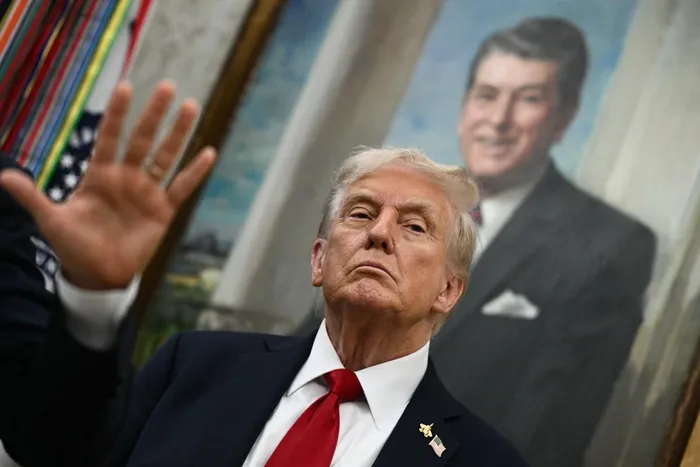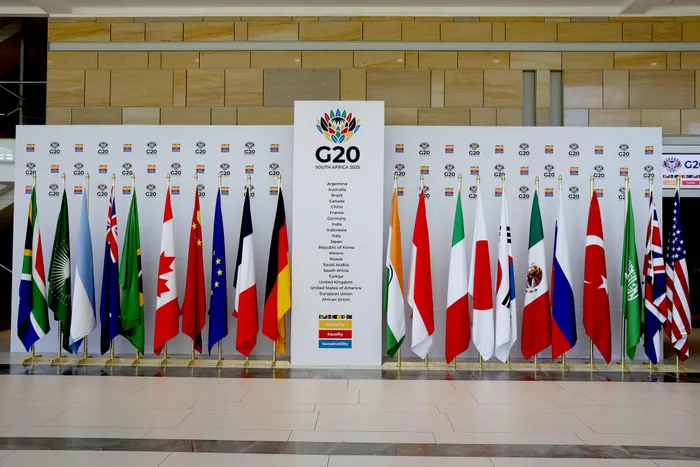Trump's G20 boycott signals another low point in diplomatic relations

US President Donald Trump
Image: Brendan Smialowski / AFP
US PRESIDENT Donald Trump’s decision to boycott the G20 Summit in Johannesburg will not only further weaken strained US-SA relations, but will push Pretoria closer to China, Russia, and other BRICS nations.
“This reality builds into the BRICS expansion and growth. This decision inadvertently speaks to a clearer call from the Global South towards multilateralism and a reformation of international power structures,” said University of Kwa-Zulu Natal international relations expert Dr Noluthando Phungula.
Her remarks come after President Cyril Ramaphosa recently described the US decision to snub the summit "their loss," saying that "boycott politics doesn't work" and that the summit will proceed without the US.

Experts have warned that United States boycotting of the G20 Summit in Johannesburg may have serious implications for South Africa's participation in global agendas
Image: Supplied
The two countries have had a tumultuous relationship since Trump took over as president, making unfounded claims of white genocide in South Africa. The expulsion of South African ambassador to the US Ebrahim Rasool further strained relations between the two countries. The snubbing of the G20 makes the situation awkward for South Africa as it must hand over the presidency to the US.
Phungula said the growing alignment of SA with alternative global governance structures reflects a larger shift in global power dynamics, where nations in the Global South such as SA look to counterbalance Western influence.
Phungula said the US decision to boycott the summit raises serious concerns about the future cohesion of the G20 and that it undermines the G20's legitimacy and effectiveness.
“This is as the USA retains the position of being one of the key global economies that has a key role in the G20 which has in the past contributed to stability of global financial markets, coordinating economic policy, and addressing geopolitical crises,” she said.
Dr Nomvula Mphahlele, a researcher on SA foreign policy, said: “The US sponsors most of the international initiatives like climate change, they use a huge amount of money for the operation of the United Nations and other financial institutions like the World Trade Organisation. If the US is boycotting then it sends a strong message of the future of multilateralism and how the G20 is going to operate moving forward.”
She, however, noted that it is not yet clear whether the US is no longer interested in the collective efforts that are organised through the G20.
“It also has implications for those countries that are associated with the US. As you saw, Argentina is currently receiving financial support from the US, so obviously it has to be seen to be standing in solidarity with the US,” she said.
She said it is unlikely South Africa will lose its G20 seat given that a country’s inclusion is voted by members and not just by one person.
However, she said the US might continue excluding SA from certain activities, as invitations are often required to attend G20 meetings such as the finance minister’s meeting and the working groups.
Cape Times